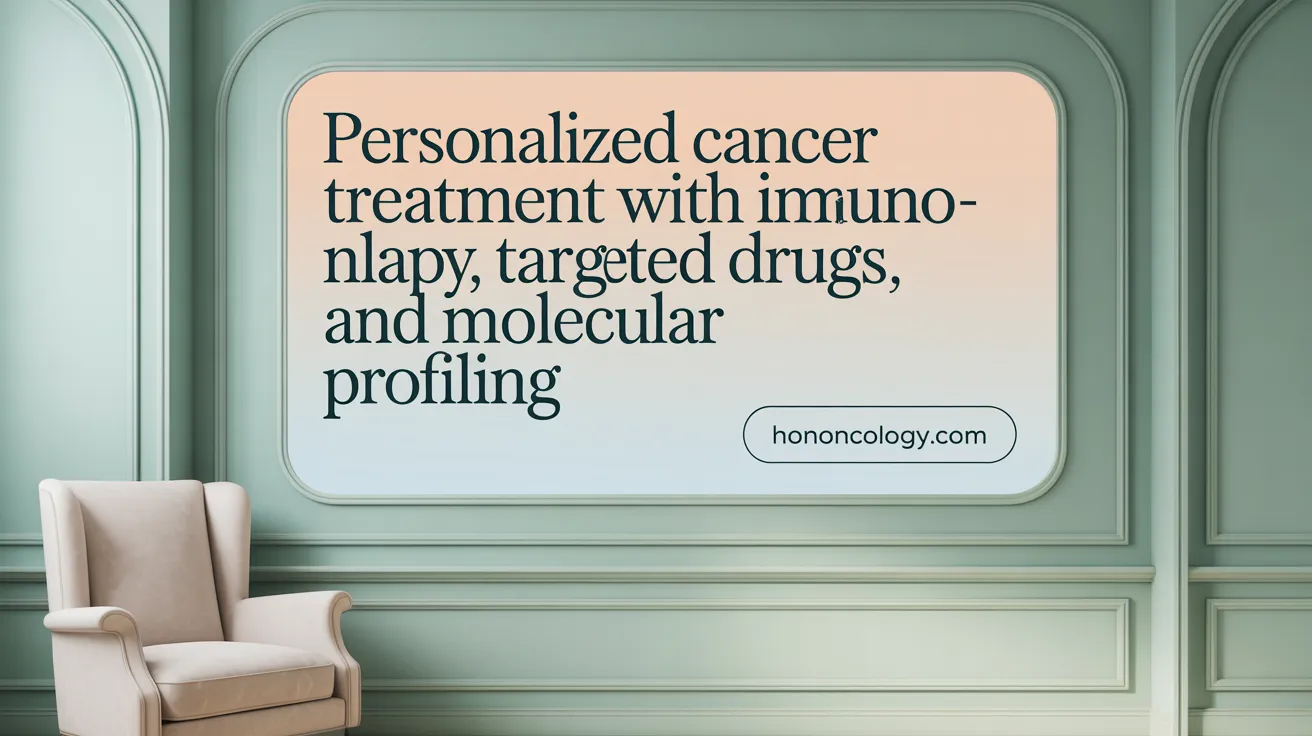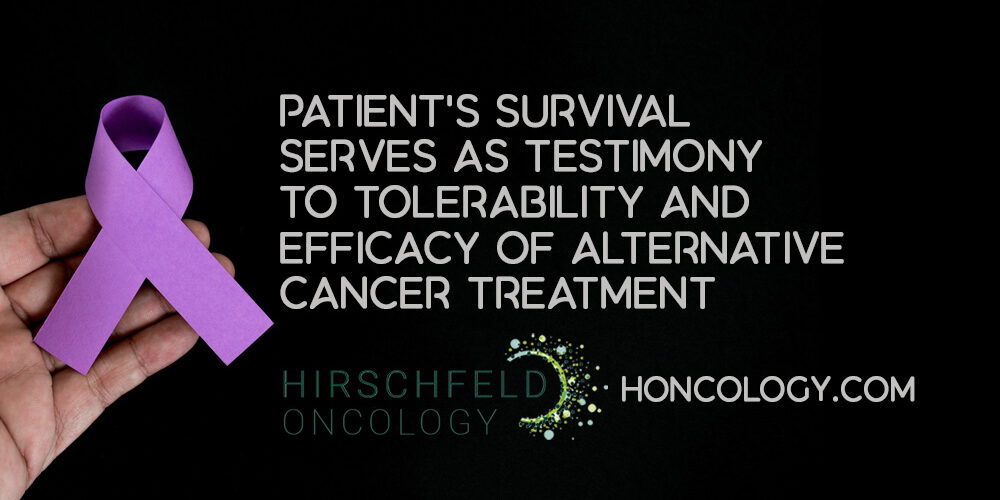Introducing the New Era of Gastrointestinal Cancer Treatments
Gastrointestinal (GI) Cancers: A Global Health Challenge
Gastrointestinal cancers, including stomach, colorectal, pancreatic, esophageal, and liver cancers, represent a significant health burden worldwide, accounting for nearly 25%-40% of all cancer-related deaths. Despite advances, these cancers often present with late-stage diagnoses and have high recurrence rates, leading to poor survival outcomes.
Demand for Innovation and Personalization
The complexity and diversity of GI cancers highlight the urgent need for innovative treatments tailored to individual patients. Modern therapies focus on personalized medicine, utilizing molecular and genetic profiling to guide targeted, immune, and combination therapies. This precision approach aims to improve effectiveness while minimizing side effects.
Multidisciplinary Care: The Cornerstone of Effective Treatment
Managing GI cancers requires collaboration among medical oncologists, surgical oncologists, radiation specialists, and research teams. Multidisciplinary teams design comprehensive treatment plans that integrate surgery, chemotherapy, radiation, immunotherapy, and novel targeted approaches. This coordinated care ensures optimal patient outcomes through shared expertise and access to advanced clinical trials.
State-of-the-Art Surgical and Chemotherapy Techniques in GI Cancer Treatment
Surgical advancements including robotic and minimally invasive approaches
Surgical treatment for gastrointestinal (GI) cancers has evolved considerably, emphasizing precision and recovery. Techniques such as minimally invasive laparoscopic surgery and robotic surgeries allow surgeons to operate with enhanced accuracy and smaller incisions. Robotic gastrectomy, for example, is increasingly used for stomach cancer, offering benefits like reduced blood loss and faster patient recovery. Endoscopic mucosal resection and submucosal dissection provide alternatives for early-stage tumors, minimizing tissue removal and preserving organ function.
Use of hyperthermic intraperitoneal chemotherapy (HIPEC)
Hyperthermic intraperitoneal chemotherapy (HIPEC) represents a cutting-edge approach for GI cancers that have spread within the abdominal cavity. Following surgical tumor removal, heated chemotherapy drugs like cisplatin and paclitaxel are circulated within the abdomen to target microscopic cancer cells. This method enhances drug penetration and effectiveness, significantly improving survival in selected patients, such as those with peritoneal metastasis from stomach cancer. Clinical studies show promising long-term outcomes with manageable recovery times.
Preoperative and postoperative chemotherapy strategies
Chemotherapy plays a vital role both before and after GI cancer surgery. Neoadjuvant (preoperative) chemotherapy, often combined with radiation, is designed to shrink tumors, improving surgical success rates and patient prognosis. Postoperative (adjuvant) chemotherapy aims to eliminate residual cancer cells and reduce recurrence risk. Diverse administration routes are utilized, including intravenous chemotherapy, intraperitoneal chemotherapy, and HIPEC techniques, tailored according to tumor characteristics and patient health status.
Multidisciplinary collaboration among oncologists and surgeons
Treatment planning for GI cancers increasingly relies on a multidisciplinary cancer treatment team involving oncologists, radiation specialists, and surgeons. Such collaboration ensures comprehensive care by integrating diagnostic imaging, molecular profiling, and clinical expertise to personalize treatments. This team approach optimizes surgical decisions, chemotherapy regimens, and radiation plans, improving both survival rates and quality of life for patients across various GI cancer types.
Harnessing Immunotherapy and Targeted Therapies for Personalized Care

Immune Checkpoint Inhibitors and Their Mechanism
Immune checkpoint inhibitors are a class of immunotherapy drugs that enhance the patient’s immune response against stomach cancer. These inhibitors, such as nivolumab, pembrolizumab, and durvalumab, work by blocking proteins like PD-1 or PD-L1 that tumors use to evade immune detection. By “unmasking” cancer cells, these agents allow immune cells to identify and destroy tumors more effectively, improving event-free survival rates, as demonstrated in recent clinical trials.
Targeted Therapies Like Trastuzumab and Ramucirumab
Targeted therapies focus on specific molecules that promote cancer growth. Trastuzumab is widely used for HER2-positive gastric cancers and can significantly improve survival when combined with chemotherapy. Ramucirumab, another targeted agent, inhibits VEGF receptors to slow tumor blood vessel growth and is used primarily in second-line treatment. Both drugs are administered intravenously and have side effect profiles that are manageable with monitoring.
Role of Molecular and Genetic Profiling in Guiding Treatment
Molecular and genetic profiling of tumors is essential for personalized care. Testing for markers such as HER2, PD-L1, microsatellite instability (MSI), and tumor mutational burden (TMB) helps clinicians select appropriate immunotherapy or targeted therapy options. This profiling allows for tailoring treatment plans to the tumor’s unique genetic makeup, maximizing effectiveness and minimizing unnecessary toxicity.
Emerging Antibody-Drug Conjugates and Bispecific Antibodies
Innovative therapeutics like antibody-drug conjugates (ADCs) deliver chemotherapy directly to cancer cells. For example, fam-trastuzumab deruxtecan targets HER2-positive cells, improving outcomes in advanced disease. Bispecific antibodies simultaneously bind two targets (e.g., immune checkpoints or tumor antigens and T-cell proteins) to enhance immune activation while limiting side effects. These novel agents are under ongoing clinical investigation, promising more precise and potent therapies.
Biomarker-Driven Treatment Selection
The integration of biomarker testing into clinical practice enables more rational treatment choices. Gastric and gastroesophageal cancers positive for biomarkers such as HER2 or PD-L1 receive customized regimens combining chemotherapy with immunotherapy or targeted drugs. This approach optimizes response and patient quality of life by identifying who may benefit most from novel agents such as checkpoint inhibitors or antibody-drug conjugates (ADCs).
This personalized strategy, guided by molecular insights and advanced therapeutics, represents the future of managing stomach cancer with the best possible outcomes.
Breakthrough Clinical Trials Shaping Future Treatment Standards
What were the key findings of the Matterhorn Phase III trial with durvalumab plus chemotherapy?
The Matterhorn Phase 3 clinical trial evaluated the addition of the immunotherapy drug durvalumab (Imfinzi) to standard FLOT chemotherapy regimen for patients with resectable stomach and gastroesophageal junction cancers. Enrolling 948 patients across 176 centers in 20 countries, the study demonstrated a significant improvement in event-free survival (EFS). Specifically, 67.4% of patients receiving durvalumab plus chemotherapy remained event-free at two years, compared to 58.5% with chemotherapy alone. The combination also more than doubled the pathologic complete response rate (19% versus 7%). Importantly, the safety profile was consistent with known risks and showed no increase in serious side effects.
How have new combination therapies expanded treatment options?
Beyond durvalumab, other combination therapies are showing promise. For advanced stomach and esophageal cancers, the pairing of nivolumab (a PD-1 inhibitor) with anlotinib (a targeted therapy) achieved an overall response rate of 29.2% and disease control rate of 64.6% in a recent trial involving 48 patients. This approach was well tolerated and revealed meaningful improvements in progression-free survival and overall survival, highlighting the potential for biomarker-driven personalized treatment.
What is the role of tumor infiltrating lymphocyte (TIL) therapy combined with pembrolizumab?
Tumor infiltrating lymphocyte (TIL) therapy, a personalized immunotherapy involving re-infusing a patient's own tumor-fighting immune cells, combined with the checkpoint inhibitor pembrolizumab, has demonstrated remarkable tumor shrinkage in metastatic gastrointestinal cancers. In a trial of 91 patients, about 24% receiving selected TILs plus pembrolizumab experienced significant tumor reduction compared to 7.7% with TILs alone. The treatment showed durable responses lasting months to years, with manageable side effects, offering hope for patients with difficult-to-treat metastatic GI cancers.
How does diverse, global trial participation strengthen clinical evidence?
The broad recruitment across multiple continents in trials like Matterhorn ensures data reflects varied genetic backgrounds and healthcare contexts, improving the generalizability of findings. Such diversity supports refining standards of care globally, especially since gastric and esophageal cancers show rising incidence even in younger populations worldwide. These trials provide vital evidence toward integrating immunotherapy and targeted agents into routine early-stage and advanced GI cancer management.
These breakthrough trials collectively mark a transformative era in gastrointestinal oncology, providing more effective and safer therapies with personalized approaches. Ongoing research continues to test novel immunotherapies, targeted therapies, and combination regimens to further improve outcomes for patients worldwide.
Technological Innovations Enhancing Diagnosis and Surgical Precision

Integration of artificial intelligence in early detection and diagnosis
Artificial intelligence (AI) has become pivotal in transforming technological advances in gastrointestinal cancer management by enhancing early detection and diagnosis. AI-powered tools such as computer-aided detection (CADe) systems improve the identification of precancerous polyps and tumors during endoscopic procedures. Machine learning algorithms, including convolutional neural networks, assist clinicians in accurately staging tumors and predicting treatment responses. This advanced technology allows for more precise assessments and better clinical decision-making.
Quantum technology-assisted laparoscopic probes for tumor mapping
A novel quantum technology-assisted laparoscopic probe is being developed to improve tumor and lymph node mapping during minimally invasive surgeries. This innovative probe uses quantum sensors combined with iron-oxide nanoparticles to precisely detect cancerous lymph nodes, minimizing unnecessary tissue removal. The approach promises targeted surgeries with fewer complications, faster recovery, and improved patient outcomes by accurately delineating cancer spread intraoperatively.
Use of digital pathology and liquid biopsies
Digital pathology enhances tissue sample analysis by digitizing slides for AI-driven interpretation, complementing traditional microscopic examination. This improves diagnostic accuracy and tumor characterization. Additionally, liquid biopsies analyzing circulating tumor DNA (ctDNA) offer minimally invasive methods to detect cancers early, monitor treatment response, and identify recurrence. These technologies support personalized treatment strategies by providing real-time tumor profiling such as those described in precision oncology in GI cancers.
Minimally invasive robotic surgeries improving outcomes
Robotic-assisted surgeries have revolutionized the surgical management of gastrointestinal cancers, especially for esophageal and pancreatic tumors. These minimally invasive techniques provide surgeons with enhanced precision, better control, and improved dexterity compared to conventional methods. Benefits for patients include reduced blood loss, fewer complications, shorter hospital stays, and quicker recoveries. Research continues to refine robotic procedures to further improve long-term oncological safety and functional outcomes, as exemplified by the robotic gastrectomy procedures and minimally invasive GI cancer surgery.
The Science Behind Combination and Metronomic Chemotherapy Approaches
Low-dose and Multi-drug Combination Chemotherapy Regimens
Combination chemotherapy involves using multiple drugs simultaneously, often at lower individual doses to reduce toxicity while enhancing overall effectiveness. Dr. Azriel Hirschfeld has pioneered regimens that utilize 4 to 6 drugs at low doses, achieving improved safety and efficacy, especially in resistant gastrointestinal (GI) cancers. This approach targets cancer cells through multiple mechanisms, thereby increasing the likelihood of overcoming tumor heterogeneity and reducing drug resistance.
Metronomic Chemotherapy Benefits and Safety
Metronomic chemotherapy consists of administering chemotherapy drugs at low, regular doses with minimal breaks. This regimen is designed to minimize side effects while inhibiting tumor angiogenesis—the formation of blood vessels that supply the tumor. Its continuous dosing schedule supports immune modulation and reduces the chance for cancer cells to develop resistance. Metronomic protocols have been found to be well tolerated, making them suitable for patients with refractory GI cancers who may not tolerate aggressive treatments. Learn more about metronomic chemotherapy and innovative cancer treatments.
Strategies to Overcome Drug Resistance in Refractory GI Cancers
Drug resistance is a major hurdle in treating GI cancers. Combining multiple low-dose chemotherapeutics helps to combat resistant cell populations by attacking different survival pathways simultaneously. Additionally, integration of immunotherapy and targeted agents with these chemotherapy regimens can disrupt tumor growth signals and enhance immune recognition of cancer cells, addressing resistance on multiple fronts. Discover advanced systemic therapies and immunotherapy options for gastric cancer and targeted therapies in gastrointestinal cancers.
Multimodality Treatments Combining Chemotherapy, Immunotherapy, and Targeted Agents
Modern treatment paradigms emphasize personalized, multimodal approaches. Chemotherapy is frequently combined with immunotherapies—such as immune checkpoint inhibitors—and targeted therapies that interfere with cancer-specific molecules or genetic mutations. This collective strategy is tailored based on molecular profiling of tumors and aims to maximize therapeutic impact while reducing toxic side effects. For GI cancers, this often translates to better disease control and improved patient outcomes. Explore more about multimodality cancer treatment teams and personalized approaches and advanced gastrointestinal cancer therapies.
Personalized Monitoring and Supportive Technologies Improving Patient Outcomes

How do mobile and wearable technologies support nutritional and symptom management in gastrointestinal cancer care?
Mobile and wearable technologies have become valuable tools for supporting patients with gastrointestinal cancers. They assist in monitoring dietary intake and physical activity, especially post-surgery, helping patients meet nutritional targets and reduce complications. For instance, mobile apps for dietary management post-gastrectomy designed for gastric cancer patients undergoing gastrectomy facilitate dietary management and improve compliance with nutritional recommendations. Similarly, mobile health coaching for esophageal cancer therapy helps esophageal cancer patients maintain body composition and nutritional health during neoadjuvant therapy.
Wearable devices such as smartwatches enhancing preoperative activity in colorectal cancer patients track physical activity and functional capacity, potentially enhancing surgical outcomes. These technologies also aid in real-time symptom monitoring, which can reduce unnecessary emergency visits by enabling early intervention for complications.
What is the role of circulating tumor DNA (ctDNA) and liquid biopsies in real-time monitoring?
Circulating tumor DNA (ctDNA) and liquid biopsies provide minimally invasive options for early cancer detection, treatment response monitoring, and recurrence detection. These methods analyze genetic mutations or tumor markers from blood samples to give insight into tumor dynamics in real-time.
In gastrointestinal cancers, ctDNA helps in identifying tumor genetic profiles, tracking minimal residual disease, and predicting treatment resistance or recurrence. This enables clinicians to personalize treatments and adapt therapy plans promptly, as emphasized in precision medicine in GI cancers.
How do digital therapeutics enhance patient recovery and quality of life?
Digital therapeutics, including symptom monitoring apps and telehealth platforms, improve recovery by enabling better symptom management and personalized support. They assist patients in managing post-operative pain, nutritional changes, and fatigue, which are common challenges during cancer treatment.
For colorectal and pancreatic cancer patients, digital health interventions have shown to improve emotional and physical health, reduce avoidable hospital visits, and promote self-care practices. Digital therapeutics for gastric cancer nutrition and mobile technologies supporting pancreatic cancer recovery also support rehabilitation and dietary coaching tailored to patient needs.
How do patient-centric and compassionate care models integrate these technologies?
Patient-centric care models emphasize individualized treatment plans combined with technological support, promoting active patient participation. Oncology specialists, such as Dr. Azriel Hirschfeld, advocate for integrating traditional therapies with innovative approaches, including monitoring tools that enhance patient autonomy.
Such models foster compassionate care by ensuring ongoing support, addressing both medical and quality-of-life concerns with technologies that connect patients and care teams efficiently, as detailed in Bruckner Oncology’s patient-centered cancer care.
| Aspect | Technology & Method | Impact on Patient Care |
|---|---|---|
| Nutritional & Symptom Management | Mobile apps, wearables | Improved dietary compliance, symptom control, fewer ER visits |
| Real-time Tumor Monitoring | ctDNA, liquid biopsies | Personalized therapy adjustments, early detection of recurrence |
| Patient Recovery & Quality of Life | Digital therapeutics, telehealth | Enhanced recovery, reduced hospitalizations, emotional support |
| Compassionate, Patient-centered Care | Integrated tech & multidisciplinary teams | Empowered patients, continuous support, improved outcomes |
Future Horizons: Emerging Therapies and Collaborative Research Efforts

Development of CAR-T and Adoptive Cell Therapies
Adoptive cell therapies, including CAR-T cell therapy in GI cancers (chimeric antigen receptor T-cell) therapies, represent a forefront in gastrointestinal (GI) cancer treatment innovation. Although CAR-T has been transformative in some blood cancers, its application in GI tumors is challenging due to tumor microenvironment barriers. Recent personalized immunotherapies, such as tumor infiltrating lymphocyte (TIL) therapy combined with checkpoint inhibitors, have demonstrated promising tumor shrinkage and prolonged response durations in metastatic GI cancers.
Next-Generation Immunotherapies and Proteomic Analyses
Next-generation immunotherapies expand upon checkpoint inhibition to include bispecific antibodies that engage multiple targets simultaneously, potentially enhancing immune responses while minimizing systemic toxicity. Advances in proteomic profiling help to identify predictive biomarkers and immune landscape features, improving patient selection and personalizing immunotherapy approaches.
Collaborations Bridging Academia, Industry, and Clinical Practice
Effective advancement in GI cancer therapy relies on strong alliances among academic researchers, clinical oncologists, and pharmaceutical companies. Multi-disciplinary meetings and translational research initiatives accelerate laboratory discoveries into clinical applications, ensuring rapid development and testing of novel therapeutics, including novel bispecific antibodies and combination therapies (Translational and Precision GI-Oncology Meeting 2023).
Importance of Molecular Profiling and Precision Oncology Platforms
Molecular profiling technologies, including next-generation sequencing and liquid biopsies, provide detailed insights into tumor genetics and evolution. Precision oncology platforms leverage this data alongside artificial intelligence to tailor treatment regimens optimized to individual tumor characteristics, enabling more effective and adaptive therapeutic strategies.
Promise of Bispecific Antibodies and Antibody-Drug Conjugates
Bispecific antibodies and antibody-drug conjugates (ADCs) combine targeting specificity with cytotoxic payloads, delivering chemotherapy directly to cancer cells to minimize damage to healthy tissues. ADCs targeting proteins such as CLDN18.2 and HER2 are under clinical evaluation and show promise in refining GI cancer treatment.
This integration of novel cellular therapies, molecular diagnostics, AI-assisted precision medicine, and multi-sector collaboration lays the path for transformative advances in gastrointestinal oncology care.
Continuing the Journey Toward Enhanced Care and Hope for GI Cancer Patients
Modern treatment regimens for gastrointestinal (GI) cancers integrate advanced chemotherapy, targeted therapies, immunotherapy, and precision surgery.
Innovations such as hyperthermic intraperitoneal chemotherapy (HIPEC), immune checkpoint inhibitors, and antibody-drug conjugates are significantly improving patient outcomes. Clinical trials like MATTERHORN emphasize the vital role of combining immunotherapy with chemotherapy for better disease control.
Yet, beyond cutting-edge treatments, compassionate, personalized care remains essential.
Oncologists like Dr. Azriel Hirschfeld highlight the importance of informed, individual treatment plans and patient engagement. Multidisciplinary collaboration ensures that therapeutic advances are matched with emotional support and quality of life considerations.
The vision ahead is one of transformation through research synergy and teamwork.
By uniting clinicians, scientists, and industry partners, the future promises tailored medicine powered by molecular diagnostics, artificial intelligence, and novel biologics. This collaboration paves the way to turning GI cancers from lethal diagnoses into manageable conditions, offering renewed hope to patients worldwide.





.png)


.png)
.png)




